Newbery & Caldecott 2010: Predict-o-rama
ARBUTHNOT
So many possibilities. Who would you want to hear? I think the appeal of an author or illustrator is really sexy, but oftentimes I think the editors give even better speeches, and librarians . . . If K.T. Horning’s speech was anything like her CLNE lectures!
ADVERTISEMENT
ADVERTISEMENT
ALEX AWARDS
BATCHELDER
Filed under: Uncategorized
About Jonathan Hunt
Jonathan Hunt is the Coordinator of Library Media Services at the San Diego County Office of Education. He served on the 2006 Newbery committee, and has also judged the Caldecott Medal, the Printz Award, the Boston Globe-Horn Book Awards, and the Los Angeles Times Book Prize. You can reach him at hunt_yellow@yahoo.com
ADVERTISEMENT
ADVERTISEMENT
SLJ Blog Network
2024 Books from Pura Belpré Winners
Passover Postings! Chris Baron, Joshua S. Levy, and Naomi Milliner Discuss On All Other Nights
Winnie-The-Pooh | Review
Parsing Religion in Public Schools
Crafting the Audacity, One Work at a Time, a guest post by author Brittany N. Williams
ADVERTISEMENT


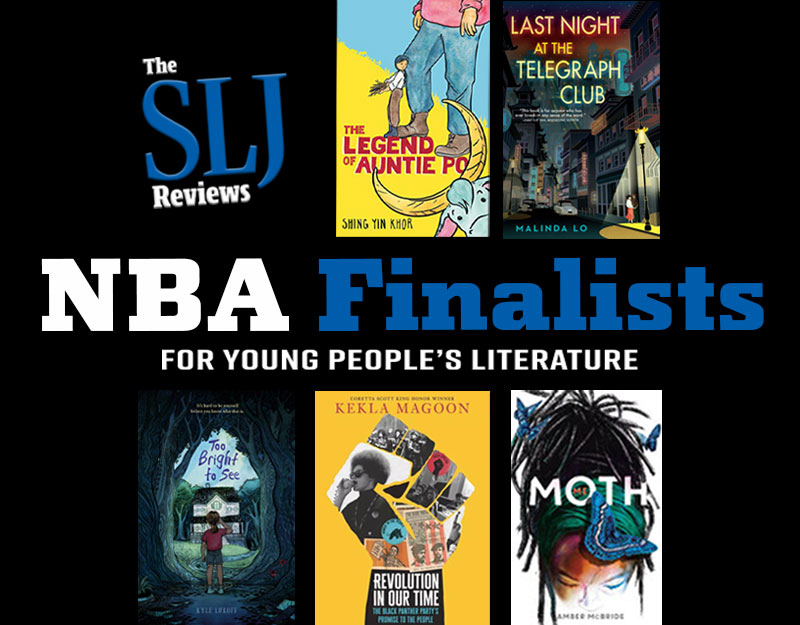
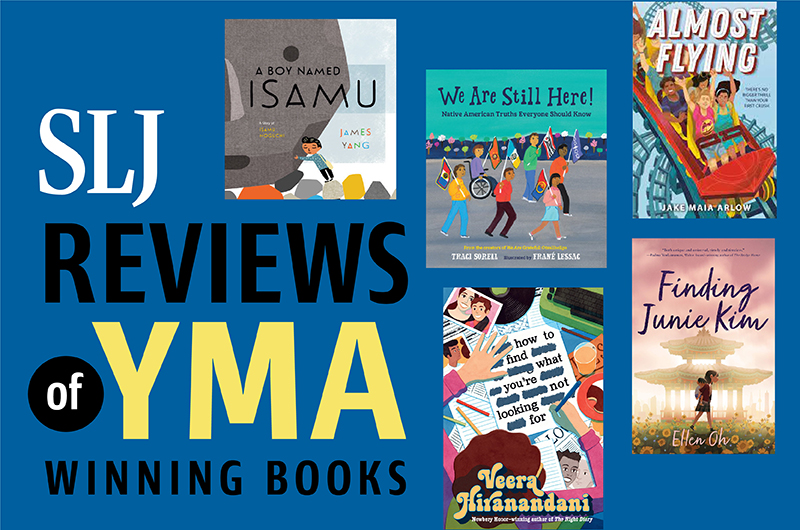
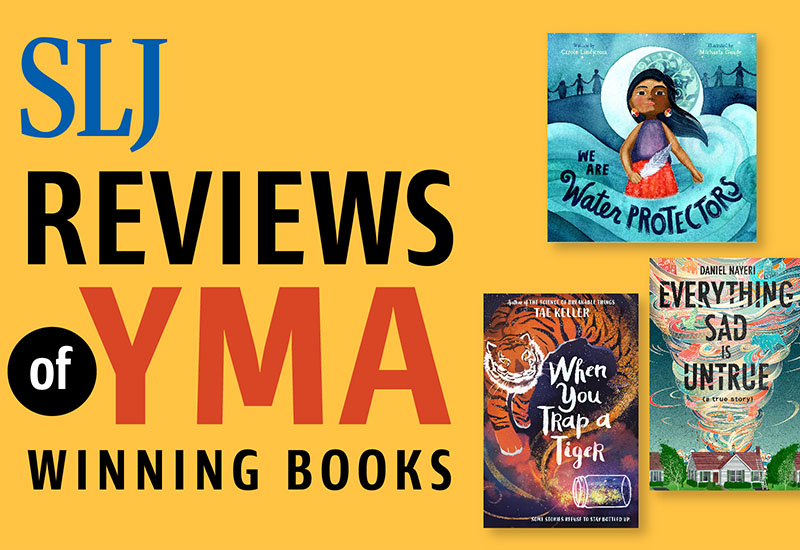
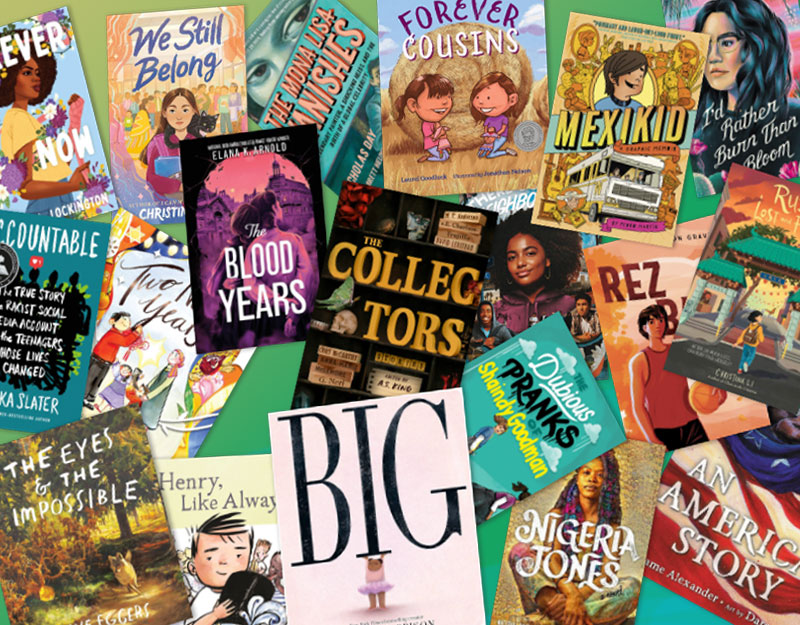
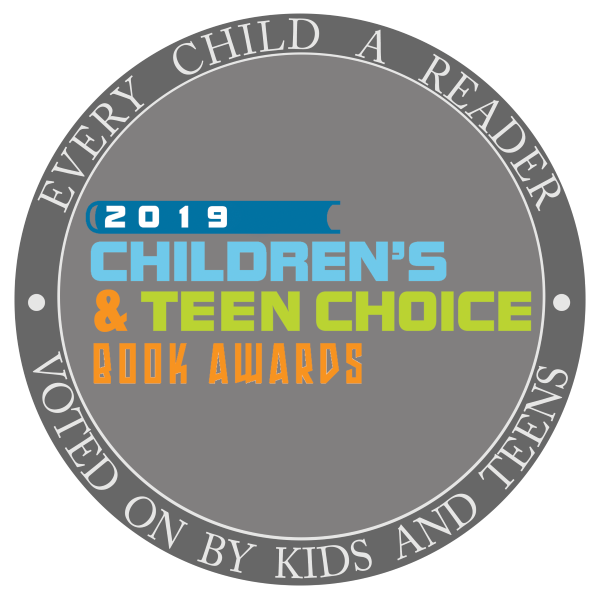
What about the Belpre Illustrator awards?
Did you really appreciate The Magicians that much? And think it’s that appealing to teens? Yes, it describes more of a prep school than a college, but where it’s striking is the very accurate, well-written depiction of twentysomething malaise. I’m not sure I would have appreciated it at all before my first existential crisis, and as it is, I didn’t find it particularly interesting. (Admittedly, I’ve got a bit of twentysomething malaise going on in my own life, so I’m not the most impartial judge.) And will you be the first person with whom I’ve discussed the book who doesn’t think the ending was *awful*?
Ack! I knew I forgot something. Belpre Illustrator. I don’t think I can go with YOU NEVER HEAD OF SANDY KOUFAX?! because Carrilho is not an American citizen or resident, so I’m going to go with 14 COWS for the Illustrator Award.
Yes, I concede both of your points about THE MAGICIANS. I just really wish the Alex Awards would include more genre fiction because those are the adult books that kids tend to read. THE MAGICIANS is more literary fantasy than genre fantasy, so I think that might be more successful with the committee, but I’m probably wrong. When I read grown-up books, I tend to read fantasy and nonfiction, so I’m probably not the best Alex prognosticator.
I’ll certainly second your call for genre fiction in the Alex awards, I’m just not sold on The Magician in particular. Of course, I’ve done a terrible job keeping up with adult books this year (there were just so many exciting YA and MGs to read instead), so I don’t have many counter-suggestions. Maybe Boneshaker by Cherie Priest – zombies in steampunk Seattle, with main characters being a single mother and her fourteen-year-old-son, who’s desperate to learn about, and preferably vindicate, his father. It’s not *amazing* but it’s good, and there’s lots that a young reader can grab onto.
YUMMY for the Geisel? Don’t the author and illustrator have to be American? Lucy Cousins is British, I believe.
Yes, you are right! Cousins is British so scratch her. Dang! I’m also guessing on the eligibility of 14 COWS based on the Gonzalez surname, but I’m hard pressed to recall any great picture books by Latino illustrators. Help me out. Anybody? Deedy, I know, is Cuban-American and could win for the same book in the Author category.
Pat Mora’s latest book, Gracias, is illustrated by John Parra, who I think is Latino. And it’s gorgeous.
I second Jan Thomas for a Geisel. She is GEEEEENIUS.
Tom Gonzalez is also Cuban-American. However, the award is for books that celebrate the Latino cultural experience, so 14 Cows would only be eligible by a broad interpretation of the criteria – the same broad interpretation that could earn Pinkney a CSK Award, as discussed on Roger Sutton’s blog a while back. I’d love to see 14 Cows win, though!
Yeah, I’m thinking it’s a no on 14 COWS, too. Haven’t seen GRACIAS, but will look for it. I also notice the Charlotte Zolotow Award for best picture book text went to WHAT CAN YOU DO WITH A PALETA? by Carmen Tofolla, illustrated by Magaly Morales. Could this be an option?
RE: moonshot and dunderheads for Geisel.
from the ala website “Contribution to the body of children’s literature that encourages and supports the beginning reader” indicates the text of a book, which must be directed at readers from pre-K through Grade 2. The book must also contain illustrations, which function as keys or clues to the text”
First off let me be clear in stating that both titles are excellent books, and Moonshot is one of my top Caldecott picks, but Jonathan do you really see these as beginning readers for grades K-2? Dunderheads as a read aloud in my second grade classroom (90% ELLs ) was really tough but the story and pictures one the class over all the same. I can’t see it as a work that “encourages and supports a beginning reader.” Its just too difficult, no less brilliant just not a beginning reader.
Moonshot has the same problem for a different reason. When I first saw Moonshot I was blown away by the art. When I read it aloud to my class I found that the sentence structure was really tricky and just didn’t flow that well. Floca’s long sentences full of colons, semicolons, and hyphens make the text difficult for emerging readers. At times I think there are times where the text verbosity loses the reader/listener. At the same time there ARE a lot of beautifully passages as well. Open Moonshot up to any random page and read the text aloud, you are just as likely to find an awkward sentence as you are a beautiful sentence full of poignant imagery. Unfortunately the existence of the former i think precludes the title from Geisel consideration.
I reread Moonshot to my class again today as we are rereading to prepare for tomorrow’s mock caldecott vote, and noticed the same clunkiness in some of the text. Example: “Eagle slows and lower goes until a spray of dust, a bloom of moon, flowers up around her.” Emergent readers do not need controlled vocabulary or decodable text, but they do need relatively standard sentence structure. When beginning readers encounter text like the above example they will very likely be tripped up by phrases like “lower goes”.
The top end of the Geisel award is 2nd grade, and I know there are second graders who can independently read both Dunderheads and Moonshot but if they can do so these students are not beginning readers.
I love that the ALA recognizes beginner readers with the Geisel award and I think it’s very important that the books honored are in fact beginner readers as these titles have very few opportunities for recognition elsewhere. My pick: Little Mouse Gets Ready. The toonbooks are amazing, students love them and hopefully with some more hardware more libraries will be purchasing them. (BTW have you seen their website? you can read all of them online in about 6 different languages or be read to in said language. I have a few students with computers at home and they love it as it offers them a chance to read something they enjoy with their non-English speaking parents)
Eric, your points about MOONSHOT and DUNDERHEADS are spot on, and I think I acknowledge somewhat about that these books are reaches, and less them as less likely than the first books I mention. Both are at the upper end of the age range, but I think MERCY WATSON is, too. I’m sure part of it is just me not wanting either book to be left with nothing . . .
Jonathan,
I’m totally with you on the Caldecott!
THE LION & THE MOUSE for the Medal (with it leading on every list — poor Pickney must be in anticipatory hell!)
ALL THE WORLD as an Honor – for its heart, lovely airiness and wide appeal.
MOONSHOT, an Honor – for conveying an artful sense of both wonder and reality (and for the non-fiction camp.)
ONCE UPON A TWICE, an Honor – for its moody beauty, drama and overall feat as a picture book.
Ok, I usually try to not state a prediction publicly, but I can’t resist.
While WYRM is my favorite for the Newbery, there are so many strong close contenders of the less-usual-Newbery-fare-variety that I would actually be more pleased to see WYRM as an honor, with a medal going to: DUNDERHEADS, WHERE THE MOUNTAIN, MARCHING or CLAUDETTE or CHARLES & EMMA (and some of the rest of those keeping WYRM company with honors).
And I would be really excited to see DUNDERHEADS with a Newbery AND Caldecott of whatever variety, to give A VISIT TO WILLIAM BLAKE’S INN some company in history.
Finally: if you haven’t voted on the “Newbery 2010” in Goodreads yet, I encourage you to do so. CLAUDETTE and CHARLES & EMMA are slowly creepy up there.
Most seem to agree on Newbery (When You Reach Me) and Caldecott (Lion & Mouse) – but Geisel…Jan Thomas deserves recognition!! Her books (especially Rhyming Dust Bunnies) light up a room like The Pigeon!
I’ve got a strong feeling that if any book wins over When You Reach Me, in twenty years or so we’re going to have another Charlotte’s Web on our hands. Even if it would be nice to see more diversity (and I mean multiple kinds of diversity) on the list of Newbery winners.
But…Charlotte’s Web IS on our hands. Right? It got an honor, and it probably didn’t need that to have the staying power it does.
The one thing the Newbery committee, and any of really, cannot judge for is timelessness. It’s impossible to predict.
No, I mean, in twenty years or so they’ll start asking questions about WHAT that committee was thinking and how could they possibly have thought and all the other things people say about Secret of the Andes winning over Charlotte’s Web.
There is no book that the committee can pick that will be more popular with children, parents, teachers, and librarians, generally speaking, than WHEN YOU REACH ME.
However, I balk at putting it in the same category as CHARLOTTE’S WEB. In fact, I think that’s one of the things I find off-putting about the book, not the book itself, just the unbridled adulation for it. It could, in time, come to be seen as one of the greatest robbed books of all time, but I think that would remain to be seen.
I don’t think popular opinion will be very kind if any fiction book is picked over WHEN YOU REACH ME, but . . . well, look at the last time nonfiction won the Medal (LINCOLN) . . . HATCHET by Gary Paulsen won an honor. We all know how popular that book is, but it was never mentioned in the robbed category, and we never think of it as such. Look at the last time a picture book won the Newbery (A VISIT TO WILLIAM BLAKE’S INN) . . . RAMONA QUIMBY, AGE 8 was an honor book. Another one that is very highly regarded, but not thought of necessarily as a book that got robbed. So I think if something like CLAUDETTE or DUNDERHEADS won the Medal, I think history would be very kind to WHEN YOU REACH ME *and* CLAUDETTE/DUNDERHEADS (or insert your favorite Newbery worthy nonfiction/poetry/picture book text). I think the immediate reaction will be furor and disappointment, but I think in time that will become muted and people will really appreciate such a choice. I mean when you scroll back through the canon, 1982 and 1988 are years that jump out very distinctly because of their atypical Medal choices.
I’ve been thinking about MOONSHOT and THE DUNDERHEADS as potential Geisel candidates all day, and I do agree with Eric more and more. I was in four elementary school libraries last year, and would have had the opportunity to field test those before mentioning them. Now, because of budget cuts, I’m teaching a special day class for intermediate grades, and my book club consists of intermediate grades, so I’m a little out of touch about how emerging K-2 readers would respond. Thanks for reporting your student feedback, Eric.
Hmm… I think it’s difficult trying to compare year-to-year because the fields are so different (and I know you’re not trying to make the claim that they’re not)–but I would wager that the lack of “robbed!” for Hatchet and the Ramona book are not because they were up against unusual choices, but because those books are not quite as iconic as Charlotte’s Web (or as, in my opinion, WYRM will probably turn out to be–though of course I agree that that “remains to be seen”). And, of course, there’s the issue that–in my opinion!–Secret of the Andes is so BAD. I can’t really get excited about Claudette Colvin, but it certainly isn’t BAD–it’s very good. In my imagination, in twenty years people would be saying “Claudette Colvin probably got the Newbery because it seemed so revolutionary at the time, strange as that might seem now”. But that’s pure speculation. I do think people are going to talk even more in the future about how this book about a civil rights figure written by a white man got all these honors–that that might seem even more problematic in the future.
See, I think WHEN YOU REACH ME is more like HATCHET and RAMONA QUIMBY, but time will tell. I’m curious, Wendy. As a Medal winner, would you put WHEN YOU REACH ME in the top ten percent of Newbery Medals (i.e. one of the top nine Medal books ever)? Your comments sort of lead me to believe that you would. Whereas I look at this past decade or so and think that in terms of quality HOLES, DESPEREAUX, CRISS CROSS (I’m biased–sorry), and THE GRAVEYARD BOOK are better (and BUD, NOT BUDDY and A YEAR DOWN YONDER are on par), and in terms of popularity HOLES and DESPEREAUX are better. So, objectively speaking, I could rank WHEN YOU REACH ME as no better than the third best Newbery Medal in the last dozen years. So for me WHEN YOU REACH ME would fall in the second ten percent or possibly the third.
Not thinking about them in relation to HATCHET and RAMONA QUIMBY, did you think of LINCOLN or A VISIT TO WILLIAM BLAKE’S INN as bad when you read them?
Can you talk a little bit more about why you think CLAUDETTE COLVIN might seem more problematic in the future because it’s written by a white man? I don’t think this is your intention, but you seem to be implying that white people should not write about black people and win awards for it–or perhaps that it would be more preferable for a black person win awards for writing about black subjects (and yet it’s not like Colvin chose to pursue Hoose to write her story, but rather the other way around). Moreover, we’ve just come from a discussion where the consensus seemed to be that, in the proper context, white people can and should write about black people–and, where justified, win awards for it.
Looking through my Booklist, I found several Carnegie Medal contenders for you–
DON’T LET THE PIGEON DRIVE THE BUS
KNUFFLE BUNNY TOO
And a Batchelder–
EIDI, sequel to the previous winner, THE CROW-GIRL
Oops. I forgot to mention my non-Weston Woods Carnegie contender. THE CARTOONISH, a documentary about Jeff Smith and BONE.
I’ve been doing Mock Caldecott Committees and votes with elementary students for years and love how children notice things adults often miss. For example, this year, several of my groups noticed that the main girl character of HIGHER HIGHER has no freckles on the cover, but freckles throughout the book. They considered this a fatal flaw, ala teh missing bell in DUCK ON A BIKE, and eliminated it immediately.
After 6 rounds of voting my class (2nd graders) whittled its initial list of 14 contenders down to a winner and three honors. The winning title was Chris Barton and Tony Persiani’s The Day-Glo Brothers. Honors went to The Lion and the Mouse, The Curious Garden and Robot Zot!. Just missing the cut were two titles that were surprisingly popular A Book and Guess Again! The early elimination of Tsunami! deeply disappointed a couple of its big supporters.
I liked A BOOK very much, but I thought I was its only fan. 🙂
Nope, I liked A Book, too. It doesn’t stand out in the Caldecott field for me, but I enjoyed it and chortled most of the way through reading it.
Many interesting thoughts there, Jonathan. I have difficulty placing books I read as an adult on the same plane with books I have loved and reread for many years. I wouldn’t rule out the possibility that I would put WYRM in the top ten. I think (if it wins) I would put it at the top of the last ten, quite honestly. I love Criss Cross and I think The Graveyard Book and some of the others are very high quality, but don’t have a certain something that says “iconic” to me. (While I liked Despereaux, it’s not even in the running for better-than-WYRM status.) My top ten Newberys overall change from time to time, though my top five don’t. (You can see that list at sixboxesofbooks.) Looking at my 6-10, yes, I think WYRM might go up there. But 6-10 are more “favorite” and 1-5 are more “best quality”. It’s all tricky for me.
I thought Lincoln: A Photobiography was excellent (though I always remember that I was annoyed when it was chosen; I was a kid) and was vaguely mystified by the choice of William Blake as both Newbery and Caldecott.
I do go back and forth about white people writing about “black” subjects and winning awards for it. I find myself wondering whether Claudette Colvin would have been published and then would have gotten the same amount of attention if it had been written by an African American. I am increasingly annoyed with language used about Claudette Colvin like “untold” and “undiscovered” and “Hoose uncovered”, because this is not an unknown story, especially–I am given to understand–in the black community. Hoose wrote sensitively and excellently, but now there is basically no room for a children’s book about Claudette Colvin written by a black person. I’m not saying he shouldn’t have written it; I’m just saying that I think it’s problematic. The Newbery canon is FULL of books written by white people about other cultures and ethnicities. Almost always, with the best of intentions.
The difference with the conversation about WYRM and race is that WYRM is not “about” a black person; Stead would not be winning an award for that. I definitely think white people should be writing multiethnic casts of characters, that straight people should be writing LGBT characters, etc etc. But I think there can be a level of appropriation that makes me uncomfortable, even if I can’t say I think it’s outright “wrong”.
(Without saying it’s equivalent, I tend to be ambivalent about books written by straight people about gay people. Depending on the book, sometimes I get REALLY annoyed and want to toss the book across the room and say “don’t do me any favors”.)
Also, on the “is WYRM in the top ten” question, I was impressed that Nina’s husband–who has also read all the Newbery winners, as I recall–said it was one of the better books he’s read.
In the case of WHEN YOU REACH ME and CLAUDETTE COLVIN, I think you and I are both reacting not to the book itself, but to the way that people are reacting to the book.
For example, I can freely acknowledge that WHEN YOU REACH ME may be the most distinguished contribution this year. No, it’s not my favorite, and it doesn’t necessarily strike me that way, but I can be objective about it. But I’ve been getting this vibe all year from people that WHEN YOU REACH ME is one of the Great Ones like CHARLOTTE’S WEB and that annoys me, but I’ve just gotta let that go because it’s not part of the Newbery criteria, and it’s not fair to Stead or the child readers of the book that some adults have lots their mind over this book.
Hoose, like Stead, has no control over how people react to his book, if they describe Colvin’s story as “untold” or “undiscovered” or “uncovered.” I can see how that it annoying (because, well, I experience it with WYRM as noted above.) I think Hoose makes clear in his afterword how he came to write Colvin’s story. I don’t think this story is known in the black community as much as it is known to students of civil rights history, but even then Claudette Colvin’s story remained little more than an interesting footnote. The objective facts were known, but the personal truths needed to be braided together with them.
I disagree that there is no room for other books on Colvin. If Marilyn Nelson wrote poetry for Emmett Till and Nikki Giovanni for Rosa Parks, why can’t they also write it for Claudette Colvin? If Bryan Collier can illustrate picture book biographies of MLK and Rosa Parks, then why not Claudette Colvin. Why not a historical fiction treatment of this period? Why not a nonfiction book with a different focus? I think there’s plenty of ore to mine in this vein.
Also, I completely understand your distinction between WHEN YOU REACH ME and CLAUDETTE COLVIN, but I would argue that they are born of the same impulse. Colleen and Wendy pledge to read and review more books about kids of color. Rebecca pledges to write more kids of color into her stories. Phillip, too, is motivated to show that the world does not belong solely to white people. Like Stead, he doesn’t write solely about black people. Indeed, this is his first book with this focus and it’s not like he’s Doreen Rappaport writing about one black icon after another.
Responding to Wendy on white authors writing about black experiences: While I understand the historical and political complexity surrounding a white person writing about black history, there are many ways in which Philip Hoose is an excellent–perhaps, the best–person to write a book about Claudette Colvin. Yes, he is white. He is also a skilled and sensitive researcher and writer. While Colvin’s story was not “untold,” it is more well known now thanks to Hoose’s fine work.
I also disagree that his book makes it less possible for other authors to write about Claudette Colvin–mainly because I just read the newest issue of the Horn Book, which reviews nonfiction books Anne Frank by Metslelaar and Sojourner Truth’s Step-Stomp Stride by Pinkney, and a new novel about Austrian Jewish children (Faraway Island). Some topics will be written about again and again; perhaps Claudette Colvin’s story will be one of them.
Jonathan, while I do approach reviews that talk about Claudette Colvin being an “untold story” with automatic irritation, I also found the book… good, but not compelling; not the way Hitler Youth is, or, to a lesser extent, Marching for Freedom. I do include “compelling” in my definition of “distinguished”.
While yes, it’s possible that lots of books could be written about Claudette Colvin in the future, I’m far from the first to comment on publishers–and a public–that have an unspoken “quota” for such books.
Wendy, now I feel I must qualify my husband’s remarks re WYRM just a little. Yes, he’s read all of the Newbery winners ever (except for STORY OF MANKIND and CADDIE WOODLAWN), and reads most of the annual contenders I hand him. When he admitted that WYRM was “one of the better” books he’s read, it was with some circumspection. The tone of voice implied: “I know you probably LOVE this book, so don’t get too carried away with what I’m about to say because your tastes may be clouding your viewpoint…”. I gave him the book because I knew it was not to his taste. I trusted him to call me to task on it if there was really nothing there, or not enough of it to make it “a contender.”
I’m finding the CLAUDETTE authorship discussion here…interesting. I am sympathetic to Wendy’s viewpoint from a distance, but I wouldn’t use it to criticize this, or any particular, book. For me, it’s more of a criticism of the industry that it’s still predominated by white authors. (While publishers may have a “quota” on these things, I can tell you that enough kids request books about CLAUDETTE COLVIN for reports, that there is plenty of room for LOTS more.)
And, I would say, that’s the context I originally brought it up in (or at least meant to)–the tide of public opinion may shift in the future and the choice of such a book may carry some stigma, or seem odd, in a way it doesn’t now. But authorial identity or credentials isn’t part of the Newbery criteria, of course, and wouldn’t affect my voting. Nor does it stop me from thinking CLAUDETTE COLVIN is a good book. Nina, do you mean your kids were asking for books about her before this one came out?
Yes, kids ask for books about her for reports, though it may be they’re assigned her as a subject by teachers or led to her by parents. There hasn’t been a lot available about her though yet, except what gets mentioned in other books about the boycott. So I’M hoping this is the first of many